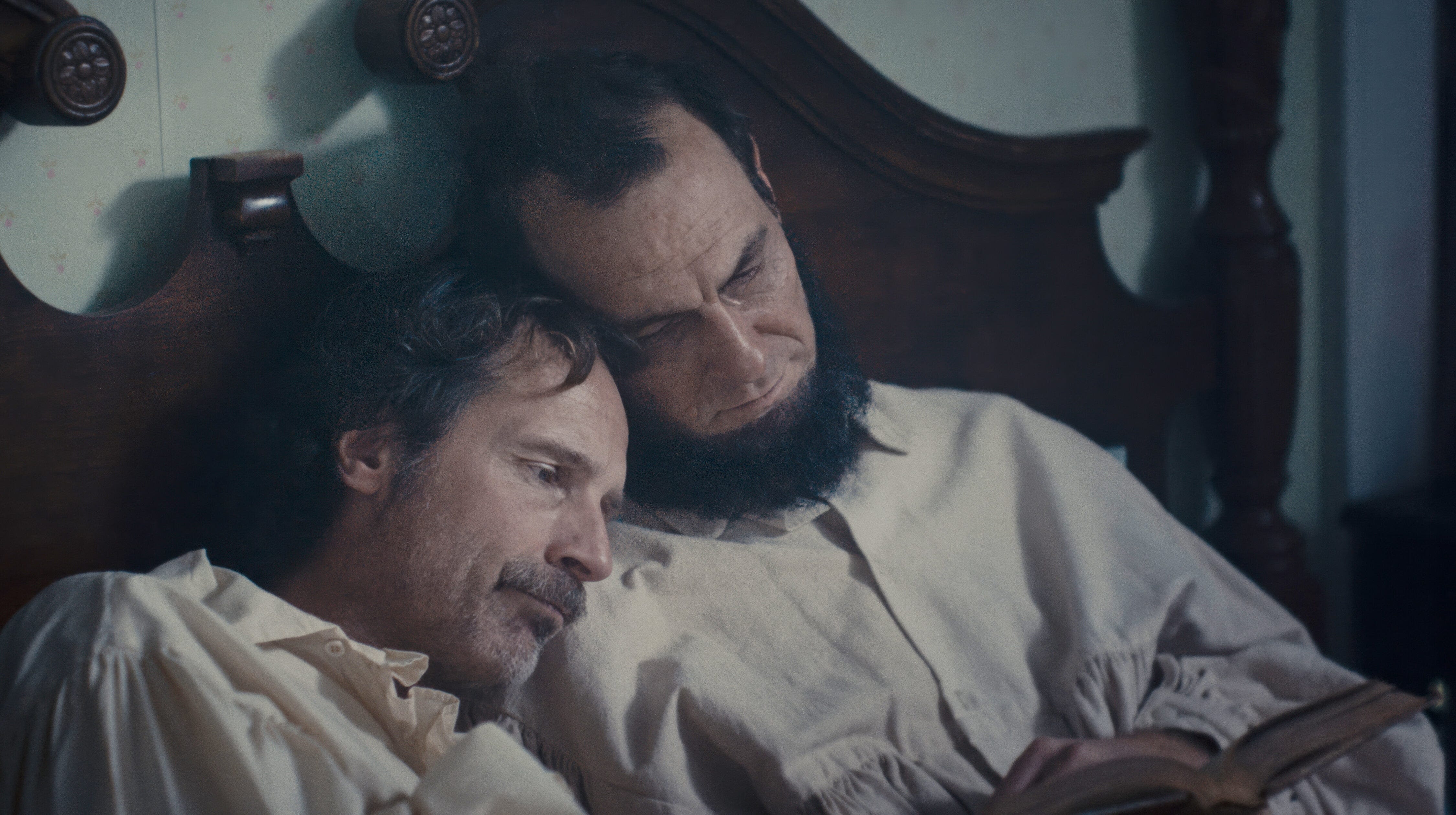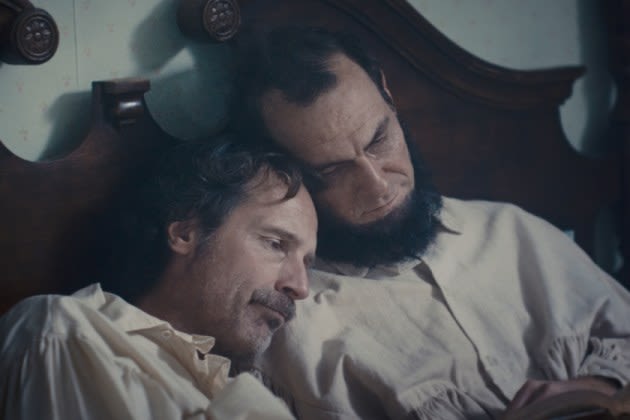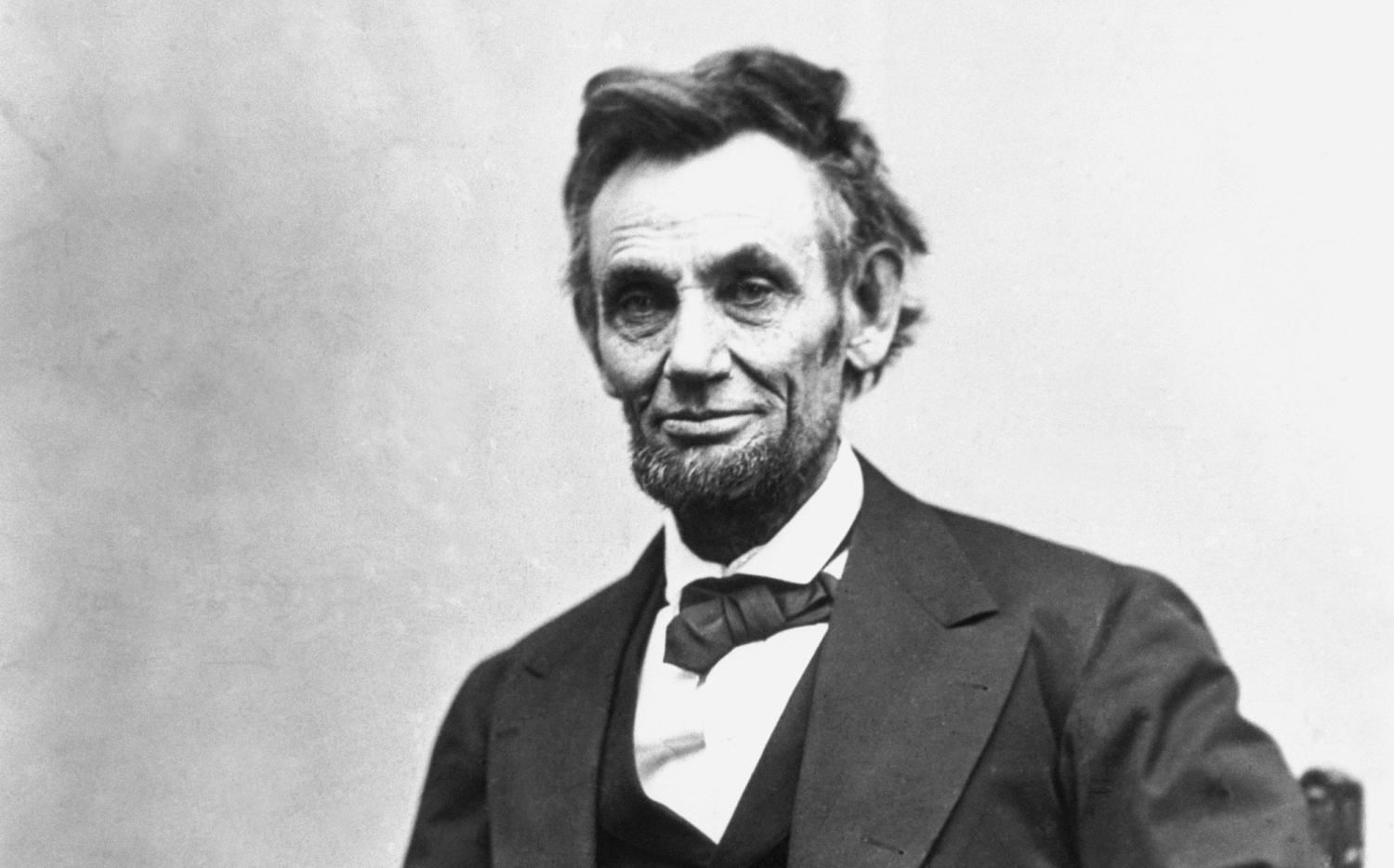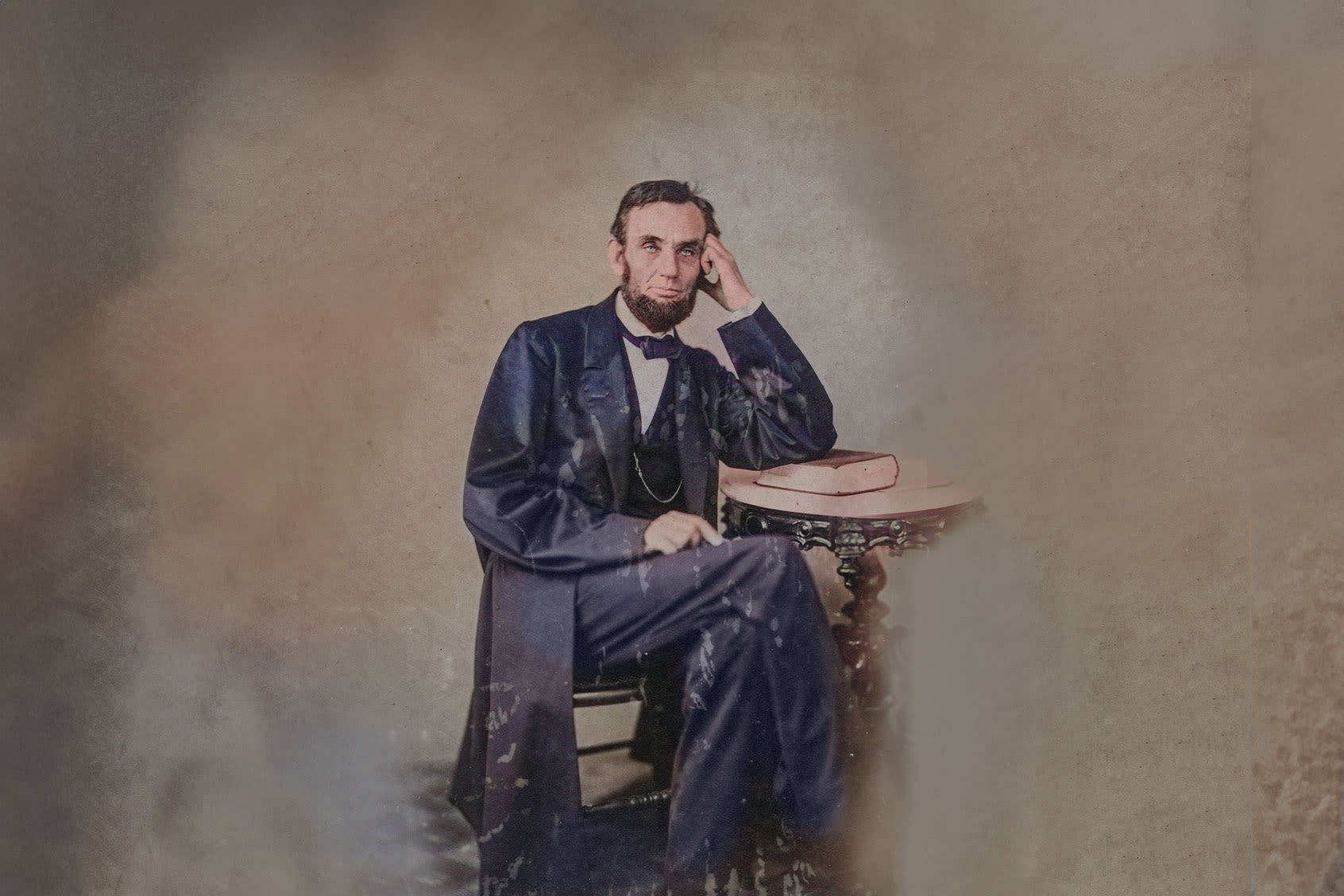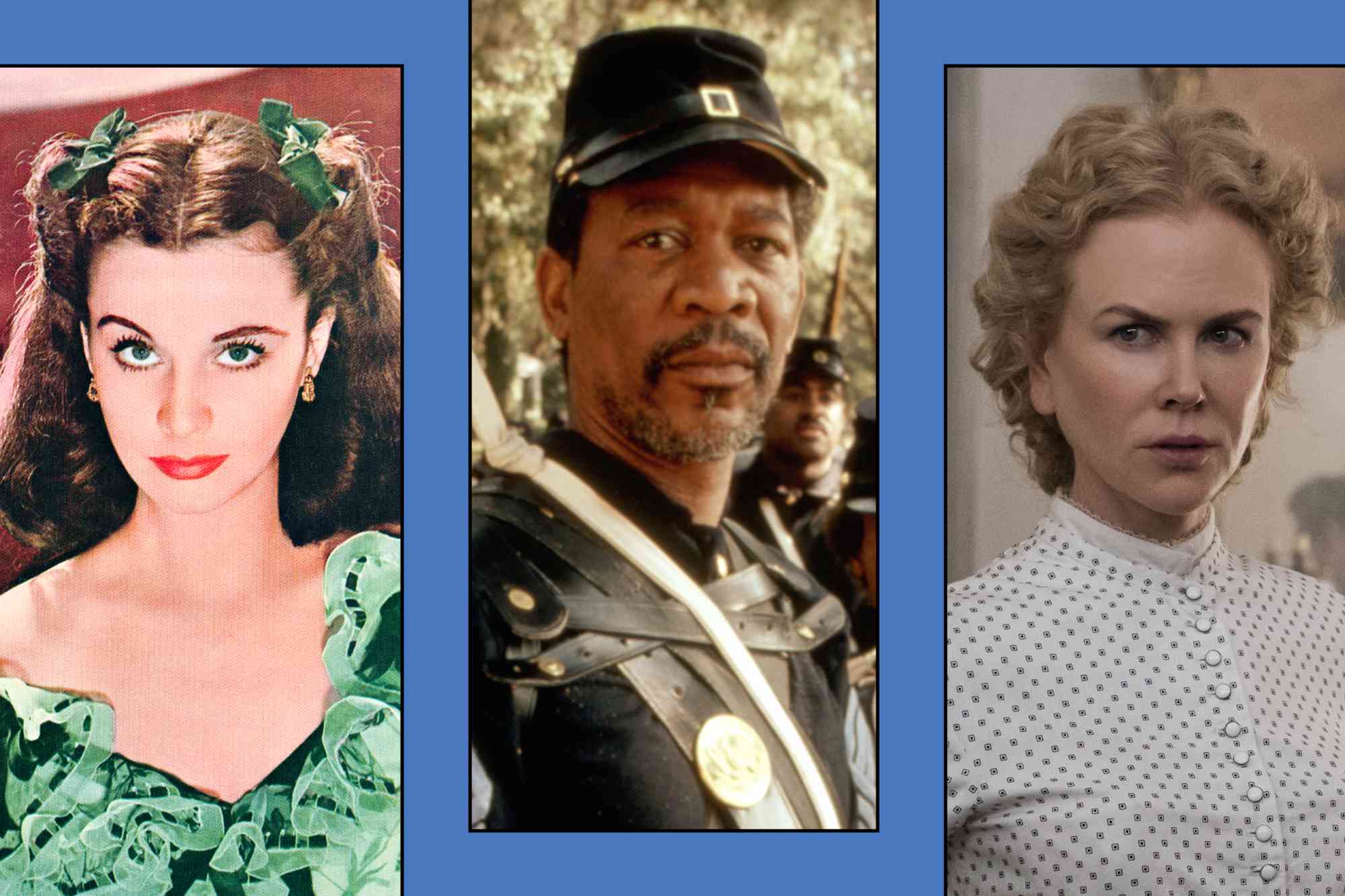Search results
His first inauguration, on March 4,1861, featured an unprecedented amount of security around the president-elect, spurred by the approaching onset of the U.S. Civil War. Lincoln had campaigned against Stephen Douglas, mostly in a series of debates which addressed popular sovereignty and slavery.
People also ask
What did Abraham Lincoln do in the Civil War?
What did Lincoln do after the Battle of Antietam?
Who was Abraham Lincoln?
How did Lincoln win the Civil War?
- Abraham Lincoln's Childhood and Early Life
- Abraham Lincoln Enters Politics
- Abraham Lincoln’s 1860 Presidential Campaign
- Abraham Lincoln and The Civil War
- Emancipation Proclamation and Gettysburg Address
- Abraham Lincoln Wins 1864 Presidential Election
- Abraham Lincoln’s Assassination
- Abraham Lincoln Quotes
Lincoln was born on February 12, 1809, to Nancy and Thomas Lincoln in a one-room log cabin in Hardin County, Kentucky. His family moved to southern Indianain 1816. Lincoln’s formal schooling was limited to three brief periods in local schools, as he had to work constantly to support his family. In 1830, his family moved to Macon County in southern ...
Lincoln won election to the U.S. House of Representatives in 1846 and began serving his term the following year. As a congressman, Lincoln was unpopular with many Illinois voters for his strong stance against the Mexican-American War.Promising not to seek reelection, he returned to Springfield in 1849. Events conspired to push him back into nationa...
Lincoln’s profile rose even higher in early 1860 after he delivered another rousing speech at New York City’s Cooper Union. That May, Republicans chose Lincoln as their candidate for president, passing over Senator William H. Sewardof New York and other powerful contenders in favor of the rangy Illinois lawyer with only one undistinguished congress...
After years of sectional tensions, the election of an antislavery northerner as the 16th president of the United States drove many southerners over the brink. By the time Lincoln was inaugurated as 16th U.S. president in March 1861, seven southern states had seceded from the Union and formed the Confederate States of America. Lincoln ordered a flee...
Shortly after the Battle of Antietam (Sharpsburg), Lincoln issued a preliminary Emancipation Proclamation, which took effect on January 1, 1863, and freed all of the enslaved people in the rebellious states not under federal control, but left those in the border states (loyal to the Union) in bondage. Though Lincoln once maintained that his “paramo...
In 1864, Lincoln faced a tough reelection battle against the Democratic nominee, the former Union General George McClellan, but Union victories in battle (especially General William T. Sherman’scapture of Atlanta in September) swung many votes the president’s way. In his second inaugural address, delivered on March 4, 1865, Lincoln addressed the ne...
On the night of April 14, 1865, the actor and Confederate sympathizer John Wilkes Boothslipped into the president’s box at Ford’s Theatre in Washington, D.C., and shot him point-blank in the back of the head. Lincoln was carried to a boardinghouse across the street from the theater, but he never regained consciousness, and died in the early morning...
“Nothing valuable can be lost by taking time.” “I want it said of me by those who knew me best, that I always plucked a thistle and planted a flower where I thought a flower would grow.” “I am rather inclined to silence, and whether that be wise or not, it is at least more unusual nowadays to find a man who can hold his tongue than to find one who ...
News about Abraham Lincoln, sexuality, homosexuality
News about Lincoln's Lebanon, American Civil War, cinematic adaptations
Also in the news
Following the Battle of Antietam, Lincoln issued the Emancipation Proclamation, ostensibly freeing all slaves in territories in rebellion against the United States. The document was symbolic of the nature of the conflict; however, Lincoln’s primary objective was the preservation of the Union.
2 days ago · Abraham Lincoln (born February 12, 1809, near Hodgenville, Kentucky, U.S.—died April 15, 1865, Washington, D.C.) was the 16th president of the United States (1861–65), who preserved the Union during the American Civil War and brought about the emancipation of enslaved people in the United States.
Aug 16, 2024 · Unhampered by outworn military dogma, Lincoln could all the better apply his practical insight and common sense—some would say his military genius—to the winning of the Civil War. There can be no doubt of Lincoln’s deep and sincere devotion to the cause of personal freedom .
He led the United States through the American Civil War, defending the nation as a constitutional union, defeating the insurgent Confederacy, playing a major role in the abolition of slavery, expanding the power of the federal government, and modernizing the U.S. economy.
5 days ago · Abraham Lincoln - Confederacy, Outbreak of American Civil War: No sooner was he in office than Lincoln received word that the Sumter garrison, unless supplied or withdrawn, would shortly be starved out. Still, for about a month, Lincoln delayed acting. He was beset by contradictory advice.
